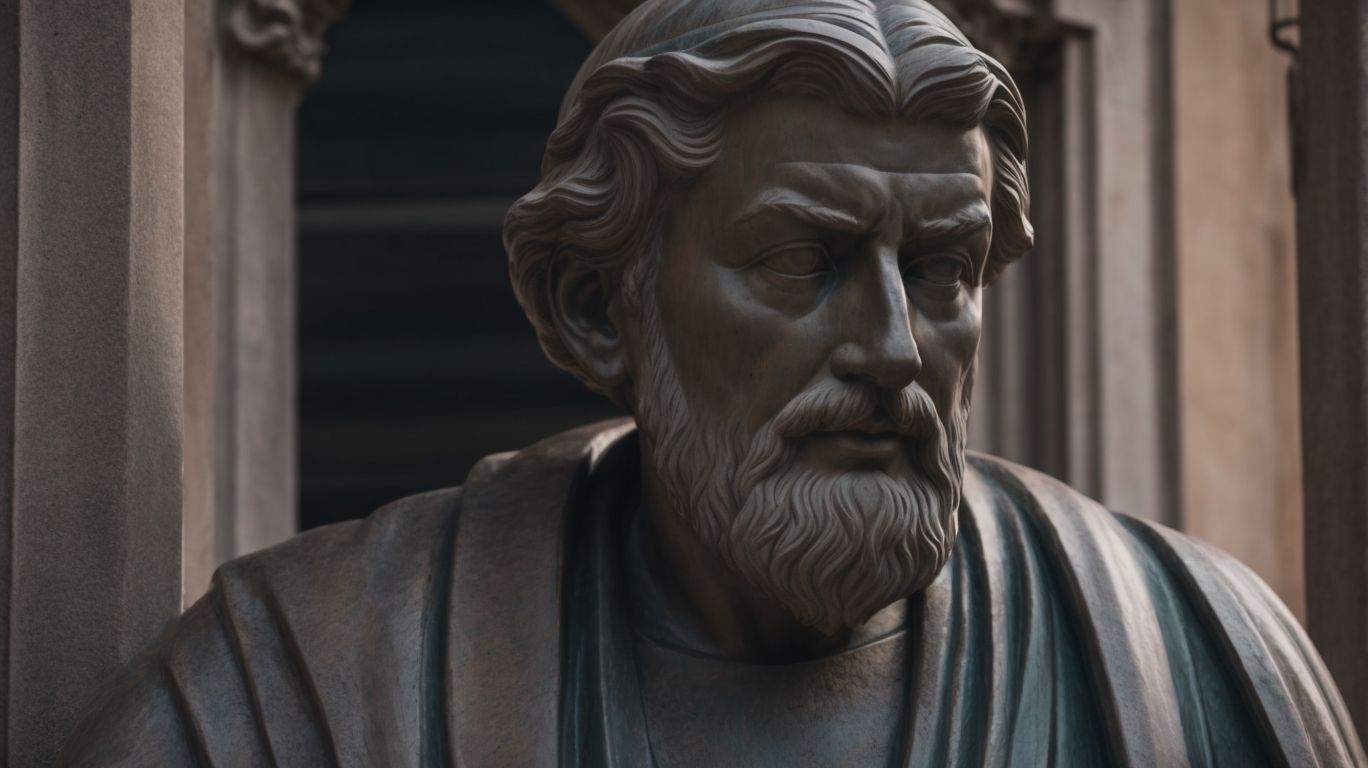Cognitive psychology is a fascinating field that delves into the intricacies of the human mind and how we process information. But who is considered the father of cognitive psychology, and what are his key contributions to the field?
In this article, we will explore the life and work of the pioneering figure who laid the foundation for cognitive psychology. From shaping the field of cognitive development to influencing education, artificial intelligence, and mental health, his legacy continues to impact our understanding of the human mind. Join us as we unravel the story of the father of cognitive psychology and delve into the controversies and criticisms that have surrounded his work.
Contents
- 1 Who is the Father of Cognitive Psychology?
- 2 What is Cognitive Psychology?
- 3 What are the Contributions of the Father of Cognitive Psychology?
- 4 How Did the Father of Cognitive Psychology Influence the Field?
- 5 What are the Criticisms and Controversies Surrounding the Father of Cognitive Psychology?
- 6 What is the Legacy of the Father of Cognitive Psychology?
- 7 Frequently Asked Questions
- 7.1 1. Who is considered the father of cognitive psychology?
- 7.2 2. What is cognitive psychology?
- 7.3 3. Why is it important to unveil the father of cognitive psychology?
- 7.4 4. What are some key contributions made by the father of cognitive psychology?
- 7.5 5. How did Ulric Neisser’s work pave the way for modern cognitive psychology?
- 7.6 6. What is the significance of taking a closer look at the father of cognitive psychology?
Who is the Father of Cognitive Psychology?
Ulric Neisser, a prominent figure in the field of Cognitive Psychology, is often considered the Father of Cognitive Psychology due to his groundbreaking research and contributions to the understanding of cognitive processes.
Neisser embarked on his academic journey at Harvard University, where he obtained his Ph.D. in Psychology under the guidance of notable psychologists. He later became a distinguished faculty member at Cornell University, further solidifying his reputation in the field. Neisser’s work on cognition, perception, and memory paved the way for the development of key theories such as the influential perceptual cycle model. His emphasis on ecological validity and the significance of real-world settings in research transformed the landscape of Cognitive Psychology.
What is Cognitive Psychology?
Cognitive Psychology is a branch of psychology that focuses on studying mental processes such as memory, perception, intelligence, and other cognitive functions that shape human behavior and understanding.
Memory functions are crucial in cognitive psychology, involving the processes of encoding, storing, and retrieving information.
Perception, another key aspect, delves into how individuals interpret and organize sensory information from the environment.
Intelligence plays a significant role in shaping behavior, influencing problem-solving skills and decision-making abilities.
Cognitive psychologists often utilize experimental methods and theories to examine these cognitive processes, striving to unveil insights into the complexities of the human mind.
What are the Key Concepts of Cognitive Psychology?
Key concepts in Cognitive Psychology encompass a broad spectrum of mental processes, including memory encoding and retrieval, perception of sensory information, cognition, reasoning, and the complex interplay of cognitive processes that define human intelligence.
Memory encoding forms the foundation for storing information in the brain, essential for learning and recalling past events. Perception involves the interpretation of sensory stimuli, shaping our understanding of the surrounding world. Cognition encompasses a wide range of mental activities such as problem-solving, decision-making, and language processing, reflecting the intricacies of human thought processes. Intelligence, a multifaceted construct, integrates these cognitive functions to adapt and thrive in various environments, ultimately influencing behavior and problem-solving capabilities.
What are the Contributions of the Father of Cognitive Psychology?
Ulric Neisser’s contributions to Cognitive Psychology have been monumental, ranging from introducing the information processing model to pioneering research on memory studies, shaping the landscape of academic contributions in the field.
His groundbreaking work on cognitive processes paved the way for significant advancements in understanding how the human mind functions. Neisser played a crucial role in bridging the gap between psychology and other disciplines, emphasizing the interdisciplinary nature of cognitive studies. His research laid the foundation for the development of various cognitive theories, influencing generations of scholars in the field.
Introducing the Information Processing Model
Ulric Neisser revolutionized Cognitive Psychology by introducing the innovative information processing model, a theoretical framework that elucidated the cognitive processes underlying human perception, memory, and problem-solving.
This groundbreaking model proposed that the mind processes information much like a computer, with input processes, output processes, and memory storage mechanisms. Neisser’s work emphasized the active nature of mental processes, challenging traditional passive views. By focusing on how individuals actively transform and manipulate data from the environment, Neisser’s model provided a more dynamic understanding of cognition. This shift from a purely behaviorist perspective to a cognitive framework reshaped the field of psychology, opening up new avenues for research and theoretical development.
Shaping the Field of Cognitive Development
Ulric Neisser’s influence extended to shaping the field of Cognitive Development within Cognitive Psychology, where his academic achievements and research laid the foundation for understanding cognitive growth and maturation.
Neisser’s groundbreaking work on cognitive schemas revolutionized how cognitive development was studied, shifting the focus towards active information processing in the mind. His concept of schemas provided a framework for understanding how individuals organize and interpret information, leading to advancements in developmental psychology.
Through his studies on perception and memory, Neisser highlighted the importance of ecological validity, arguing for the relevance of real-world contexts in cognitive research. His contributions continue to resonate in the field, influencing studies on memory, cognition, and perception.
Exploring the Role of Memory in Cognition
Ulric Neisser delved into the intricate relationship between memory and cognition, conducting pioneering research that reshaped conceptualizations of memory and its vital role in cognitive processes.
This research by Neisser contributed significantly to our understanding of how memory impacts cognitive function. His work highlighted the dynamic interplay between memory encoding, storage, and retrieval processes, unveiling the complex mechanisms through which memories influence higher-order cognitive abilities.
Neisser’s exploration of the role of schemas in memory organization revolutionized the field, demonstrating how prior knowledge structures shape memory formation and consolidation.
How Did the Father of Cognitive Psychology Influence the Field?
Ulric Neisser’s profound influence on the field of Cognitive Psychology stemmed from his diverse academic interests and innovative theories that transcended traditional behaviorist approaches, reshaping the landscape of psychology research.
Neisser’s groundbreaking work challenged the prevailing behaviorist paradigms of his time, particularly with his emphasis on perception, memory, and cognition as key elements in understanding human mental processes. His seminal book, Cognitive Psychology, published in 1967, marked a pivotal moment in the evolution of psychological research, introducing a new way of studying the mind that focused on internal mental representations and information processing.
Impact on Education and Learning
Ulric Neisser’s impact on education and learning was profound, with his academic research and contributions in psychology reshaping pedagogical approaches and fostering a deeper understanding of cognitive processes in educational contexts.
Neisser’s groundbreaking work in cognitive psychology, particularly his emphasis on ecological validity and the significance of memory and perception in learning, revolutionized traditional educational paradigms. His studies underscored the crucial role of context and individual differences in shaping learning outcomes and instructional strategies. Through meticulously designed experiments and theoretical frameworks, Neisser challenged prevailing notions of intelligence and memory, offering educators new insights into effective teaching methods and student engagement.
Influence on Artificial Intelligence and Technology
Ulric Neisser’s influence extended to the realms of Artificial Intelligence and technology, where his cognitive theories and insights played a pivotal role in shaping the development of intelligent systems and technological advancements.
Neisser’s groundbreaking concepts like pattern recognition, memory structures, and attention mechanisms have served as foundational pillars for AI research, enabling the creation of algorithms that mimic human cognitive processes.
The application of Neisser’s ideas to AI has revolutionized industries, enhancing automation, refining data analysis techniques, and improving decision-making processes in various sectors.
Influence on Mental Health and Therapy
Ulric Neisser’s influence resonated in the realm of mental health and therapy, where his psychology theories and insights into cognitive processes contributed to innovative therapeutic approaches and enhanced understanding of psychological disorders.
Neisser’s groundbreaking work in cognitive psychology revolutionized how mental health professionals approach therapy, emphasizing the importance of understanding the mind’s internal processes in the treatment of various psychological conditions. His emphasis on perception, memory, and attention provided a solid framework for practitioners to tailor interventions to individual needs, paving the way for personalized and effective treatment plans. By integrating Neisser’s ideas into therapy practices, clinicians have achieved greater success in addressing complex issues such as trauma, anxiety, and mood disorders.
What are the Criticisms and Controversies Surrounding the Father of Cognitive Psychology?
Ulric Neisser’s contributions in Cognitive Psychology were not without criticisms and controversies, as divergent perspectives emerged regarding the validity of his theories and their implications on the broader landscape of psychological science.
Some critics argued that Neisser’s emphasis on the role of schema and the top-down processing in perception oversimplified the complexities of cognitive processes. There were debates surrounding the ecological validity of his experimental methods and the generalizability of findings to real-world situations. On the other hand, supporters of Neisser highlighted the groundbreaking nature of his work in introducing the concept of ecological validity and argued that his theories paved the way for a more holistic understanding of cognition.
Criticisms of the Information Processing Model
Critics of Ulric Neisser’s information processing model in Cognitive Psychology raised concerns regarding its applicability to real-world cognitive processes and the oversimplification of complex mental functions in academic publications.
One key criticism revolves around the model’s failure to fully capture the dynamic nature of cognitive processes that occur outside controlled laboratory settings. Critics argue that the model’s emphasis on sequential, linear information processing may not accurately reflect the complexities of how humans actually think and learn in real-world scenarios.
Scholars have pointed out that the model’s focus on discrete stages of processing oversimplifies the intricate interactions among different cognitive functions. This oversimplification could lead to a reductionist view of cognition, neglecting the holistic nature of mental processes and potentially hindering our understanding of more nuanced cognitive phenomena.
Controversies Surrounding Cognitive Development Theories
Controversies surrounding Ulric Neisser’s Cognitive Development theories sparked debates within the field of psychology, with some scholars questioning the empirical basis and implications of his developmental frameworks in Cognitive Psychology.
Neisser’s theories have been subject to scrutiny due to the lack of consensus on key aspects, such as the nature of cognitive processes and the underlying mechanisms of development. Critics argue that his emphasis on individual differences overshadows the role of social and environmental factors in shaping cognition, leading to a narrow view of cognitive growth.
The controversy extends to Neisser’s interpretation of empirical data, with some researchers challenging the validity of his findings and the generalizability of his conclusions. This ongoing debate within cognitive psychology highlights the complexities inherent in understanding human cognition and the diverse perspectives that shape the field.
Criticisms of the Role of Memory in Cognition
Critics of Ulric Neisser’s emphasis on memory in cognition raised objections to the disproportionate focus on memory processes at the expense of other cognitive functions, sparking debates within the realm of memory studies and cognitive psychology.
Some experts argue that by placing such a heavy emphasis on memory, Neisser may have inadvertently overshadowed the significance of other crucial cognitive processes, such as attention, perception, and decision-making. This tunnel vision towards memory-centric views in cognition could potentially limit the understanding of the intricate interplay between various cognitive functions and their collective impact on human behavior.
What is the Legacy of the Father of Cognitive Psychology?
The legacy of Ulric Neisser, the Father of Cognitive Psychology, endures through his transformative contributions to the field, shaping the history of psychology and leaving an indelible mark on academic scholarship and research.
Neisser’s seminal work in the area of cognitive psychology laid the groundwork for understanding the complexities of human cognition, revolutionizing the way researchers approach the study of the mind. His emphasis on the importance of studying mental processes directly influenced generations of psychologists and sparked a wave of innovative research that continues to shape the field today. Neisser’s legacy extends beyond his own research, as he mentored countless students who went on to make significant contributions to the advancement of cognitive psychology.
Frequently Asked Questions
1. Who is considered the father of cognitive psychology?
The father of cognitive psychology is widely recognized to be Ulric Neisser, an American psychologist and cognitive researcher who coined the term “cognitive psychology” in 1967.
2. What is cognitive psychology?
Cognitive psychology is a branch of psychology that focuses on how the mind processes and interprets information, including perception, memory, attention, and problem-solving.
3. Why is it important to unveil the father of cognitive psychology?
Unveiling the father of cognitive psychology allows us to understand the origins and development of this field of study, as well as the impact of Neisser’s work on our current understanding of the mind.
4. What are some key contributions made by the father of cognitive psychology?
Ulric Neisser’s contributions to cognitive psychology include his groundbreaking book “Cognitive Psychology” (1967), his research on memory, perception, and attention, and his influence on the shift from behaviorism to cognitive psychology as the dominant approach in psychology.
5. How did Ulric Neisser’s work pave the way for modern cognitive psychology?
Ulric Neisser’s formulation of cognitive psychology as a science and his emphasis on the study of mental processes laid the foundation for modern cognitive psychology and influenced the development of fields such as cognitive neuroscience and artificial intelligence.
6. What is the significance of taking a closer look at the father of cognitive psychology?
Taking a closer look at the father of cognitive psychology allows us to appreciate the evolution of this field of study, gain a deeper understanding of its principles and theories, and continue to build upon his legacy in the pursuit of understanding the mind.




